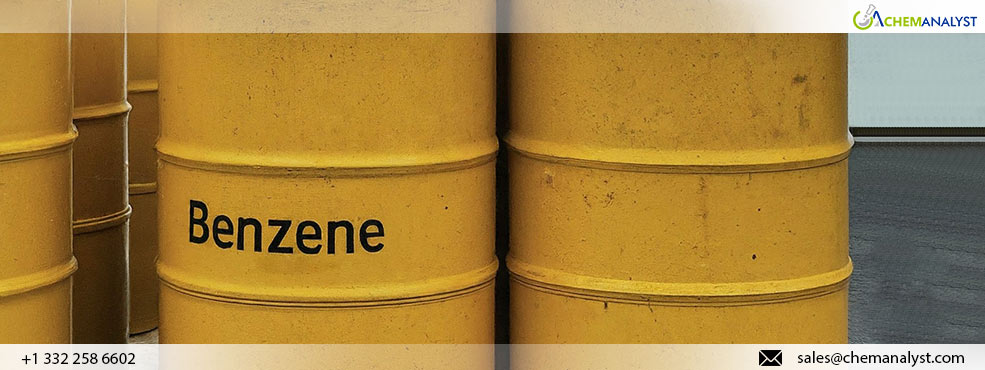Welcome To ChemAnalyst

The Benzene market in the North American region continued to remain static on the positive side of the market dynamics. Furthermore, due to increasing demand from end-use manufacturing units such as styrene, phenol, and other aromatics, the proportional impacts could be seen in the prices of Benzene in the regional market. The correlation between crude oil prices and Benzene prices is notable, as naphtha production, essential for Benzene, is directly influenced by fluctuations in crude oil prices in the domestic market. The concluding price of Benzene was observed at USD 1220 per MT, FOB Louisiana in the US market on the week ending May 17th.
The steam cracking process, which was pivotal in producing naphtha, played a crucial role in determining Benzene prices, ensuring that any rise in crude oil prices positively affected Benzene prices. Furthermore, the growing demand for Benzene from sectors like styrene, acetone, and other aromatics in the domestic market contributed to the upward trend in Benzene prices.
Hurricanes primarily impacted the petroleum markets by disrupting crude oil production and refining operations. In the United States, offshore crude oil production was heavily concentrated in the Federal Offshore Gulf of Mexico (GOM), making it highly susceptible to severe weather. Offshore oil and natural gas production units faced significant risks from hurricanes and tropical storms, necessitating emergency protocols to evacuate nonessential personnel and temporarily cease production.
Hurricanes also affected crude oil refining in specific areas of the Gulf Coast. Refineries located along the Texas and Louisiana Gulf Coast represented nearly half of the U.S. refining capacity. These facilities were vulnerable to flooding and power outages caused by major storms or hurricanes. Similar to offshore production facilities, many refineries evacuated nonessential staff and halted production temporarily when severe weather threatened employee safety or facility integrity.
The other factors pushing the prices of Benzene were the continuous demand from the styrene, phenol and other aromatics in the domestic market. A capacity crunch for ocean containers has struck global trade at the onset of the peak shipping season, causing freight spot rates to surge by approximately 30% in recent weeks and continue to rise. Adverse weather conditions, extended ocean transits, and vessels bypassing ports are exacerbating the supply chain problems. This optimistic outlook is driven by a tightening of crude oil inventories and an increasing demand for Benzene from styrene and other aromatics manufacturing units. New orders increased, while order backlogs expanded at a faster rate than in March, and inventories grew at a similar pace.
We use cookies to deliver the best possible experience on our website. To learn more, visit our Privacy Policy. By continuing to use this site or by closing this box, you consent to our use of cookies. More info.
